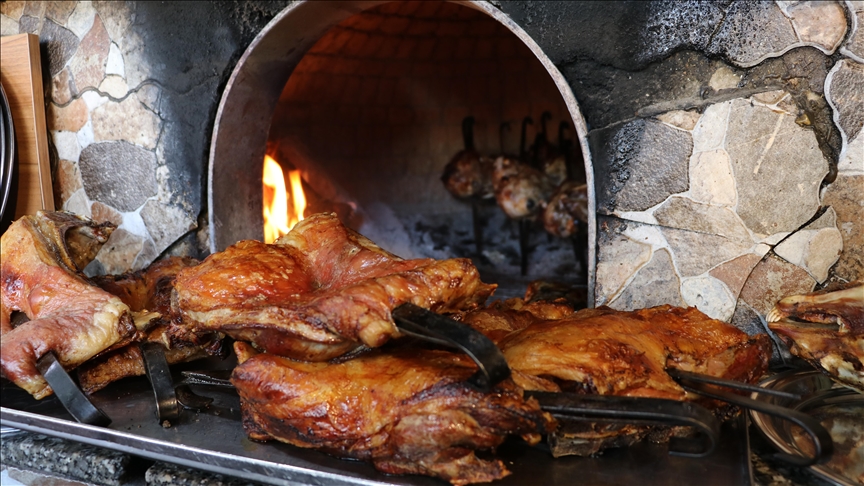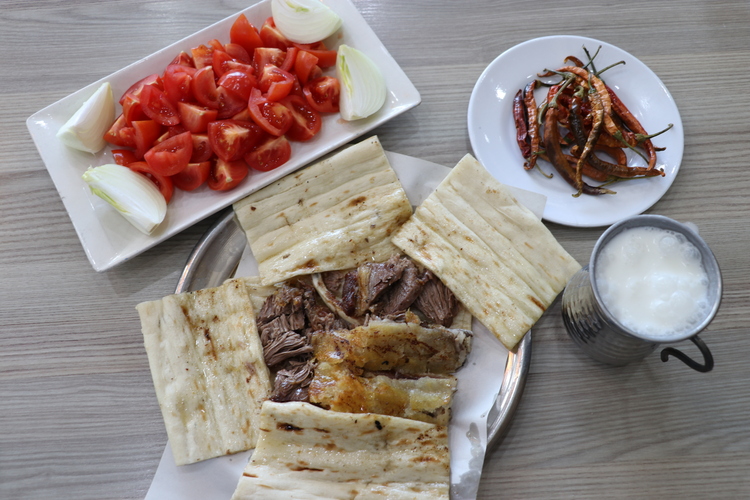Pit Kebab (Tandır) is a traditional meat dish uniquely associated with Denizli province, located in the Aegean Region of Türkiye. Also known as "pit tandır," this dish takes its name from its cooking method. The main characteristic of the dish is that the meat is cooked for a long time in specially prepared pit-shaped ovens. In Denizli, lamb meat is commonly used, and it is cooked naturally, with no ingredients added other than salt. Pit kebab is a type of dish heavily consumed especially on special occasions such as holidays, weddings, and during the month of Ramadan.

Pit Tandır (AA)
Preparation and Cooking Method
The first stage in preparing pit kebab is preparing the pit oven. This oven, called a pit, is usually 1.5 meters deep and its interior is plastered with mud to make it heat-resistant. Before cooking, oak wood is placed at the bottom of the pit and burned until it reaches a high temperature. Oak sawdust is spread inside the heated pit to control the flame. The meats, usually whole lambs, are hung on hooks with the tail part facing downwards. The hooks are fixed to a metal grate above the pit. The top of the pit is covered with a metal lid and dough, isolating it from the outside environment. In this way, with a slow cooking process lasting approximately 3-4 hours, the meat cooks in its own fat and reaches a tender consistency.
Consumption and Serving Style
After cooking, pit kebab reaches a consistency where it can be easily separated from its bones and shredded into fibers. It is usually served plain during consumption. Complementary foods such as rice pilaf, lavaş bread, and ayran are often served alongside the dish. Among the places where kebab is heavily consumed in Denizli are traditional tandır ovens. In these establishments, the kebab is prepared in the morning and served until lunchtime, running out later in the day.

Pit Kebab Presentation and Style (AA)
Cultural and Geographical Registration
Pit kebab was registered with a geographical indication in 2008 by the Turkish Patent and Trademark Office under the name "Denizli Tandır Kebabı." This registration certifies that the dish is associated with specific production conditions and a geographical area. The registration process is important both for preserving the traditional structure of the product and for guaranteeing production quality. Furthermore, geographical indication is also considered an element contributing to regional gastronomic tourism.


